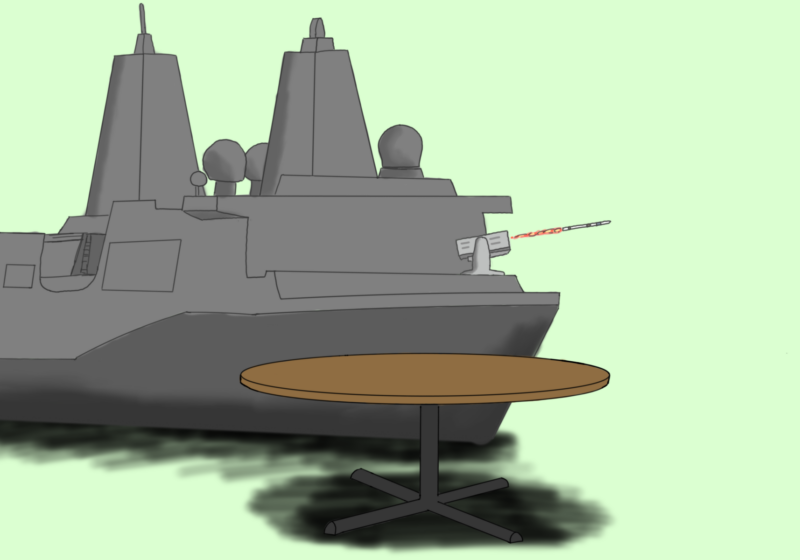A few years ago, I saw an HBO-Movie called “Conspiracy”. The show documented the infamous Wannsee Conference. This was a meeting between Hitler’s top aides, including Reinhard Hydrich and Adolf Eichmann, on what to do about the “Jewish Question.” The men smoked cigars, drank French wine, complained about their lives, and calmly discussed the issue in question. Eventually they broke out the champagne as they had found their solution ? cooperate as a whole, to “keep the trains running”, and 11 million Jews would be “evacuated” from Europe forever.
At first, I didn’t realize what this movie was truly saying. Evidently, it documented a serious and horrible event in human history, but something else was there.
Then it hit me ? chicken farming. The head of the SS, Heinrich Himmler, was a chicken farmer, Eichmann used to sell gasoline ? these men were not Hannibal Lecters, they were simply men. They were simple men who thought out, committed themselves, and carried through one of the greatest evils the world has ever seen.
Now what is the point of all this? Well this past Thursday we celebrated Halloween, a time in which we glamorize the mystique and idea of “monsters.” Our Sci-Fi movies like “Independence Day,” “Event Horizon” and “Aliens” let us confront evil as things outside of earth. Halloween itself is often a time in which we celebrate the typical monsters ? Frankenstein in the closet, the goblin in your kitchen, Ted Kennedy in your liquor cabinet ? but in all these instances we see things as “evil” creatures. We can even see people doing “evil” things, but the idea of someone inherently being “evil” is beyond comprehension for many.
This is because so many on the left say we need to “understand” the reasons behind things.
You killed your parents? You weren’t given enough attention as a child. Mugged an older couple? This just shows the inherent issue with poverty in our culture. Academics and the like want to “deconstruct” everything and the idea of simply labeling something or someone as “evil” seems too simplistic. Take for example September 11 ? after that day so much in the press was focused on “understanding” what had happened. One of the biggest articles was Fareed Zakaria’s “Why They Hate Us.”
Polls were taken showing many in the Middle East hated us and the pundits and professors banged on their desks saying we should look at this and try to see things from Osama Bin Laden’s perspective. We had to educate ourselves about the Middle East, as if my understanding of the geopolitical world would make one bit of difference to that crackpot.
This is foolishness on another level as history constantly shows those who best understand one another hate one another. India and Pakistan, Israel and Palestine, Catholic and Protestant Ireland, are only a few examples where a civilian in either camp could tell you more about the other side than a tenured professor, yet the hate is still there. After September 11 I learned and “understood” more about Afghanistan, the Middle East, Palestine, Islam and every other issue related to that date than I could ever care about.
All that made me realize was that the hijackers and all those who supported them were still “evil,” we were the “good guys” they were the “bad guys” ? and it’s not simplistic to say so.
The biggest threat I see in this post-September 11 world is that we refuse to recognize “evil” because it doesn’t “feel” good. Edmund Burke once said, “All that is necessary for the triumph of evil is that good men do nothing.” The greatest nothing our culture can do is refuse to call evil what it is.




